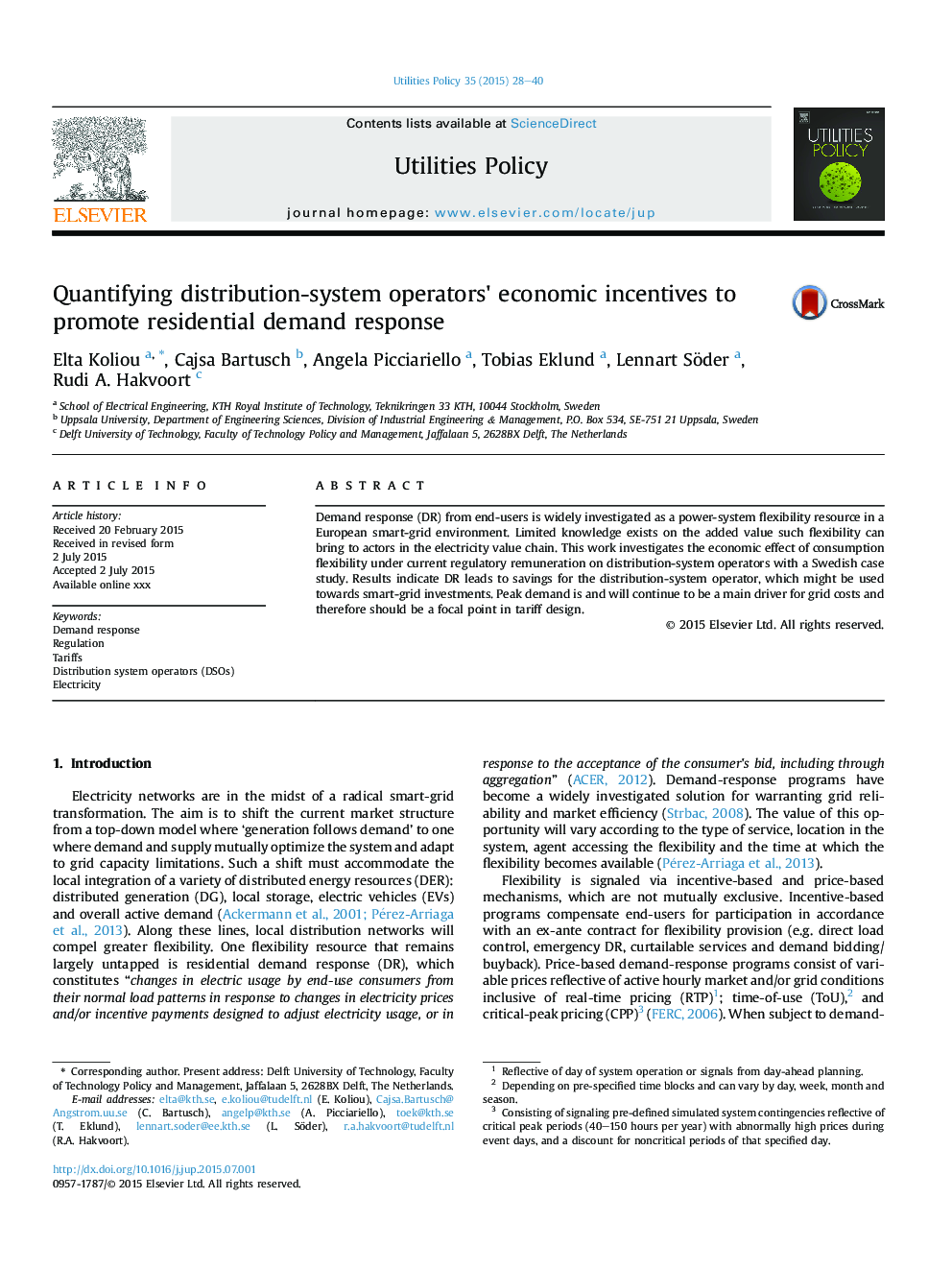| Article ID | Journal | Published Year | Pages | File Type |
|---|---|---|---|---|
| 7411578 | Utilities Policy | 2015 | 13 Pages |
Abstract
Demand response (DR) from end-users is widely investigated as a power-system flexibility resource in a European smart-grid environment. Limited knowledge exists on the added value such flexibility can bring to actors in the electricity value chain. This work investigates the economic effect of consumption flexibility under current regulatory remuneration on distribution-system operators with a Swedish case study. Results indicate DR leads to savings for the distribution-system operator, which might be used towards smart-grid investments. Peak demand is and will continue to be a main driver for grid costs and therefore should be a focal point in tariff design.
Related Topics
Physical Sciences and Engineering
Energy
Energy (General)
Authors
Elta Koliou, Cajsa Bartusch, Angela Picciariello, Tobias Eklund, Lennart Söder, Rudi A. Hakvoort,
